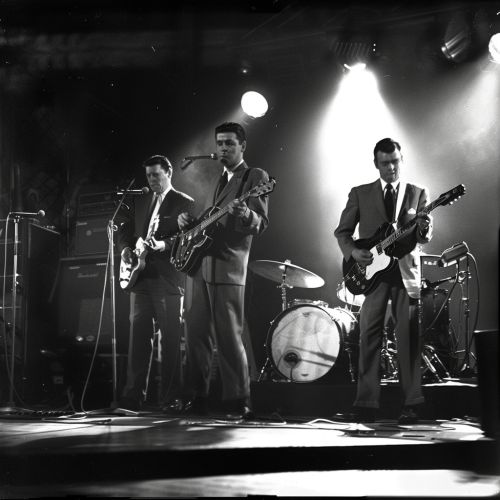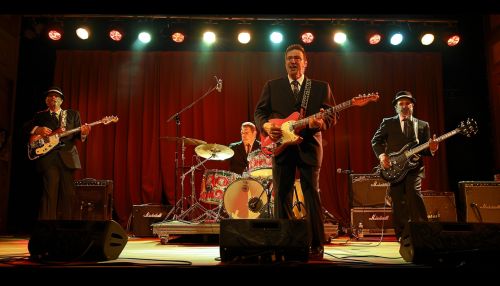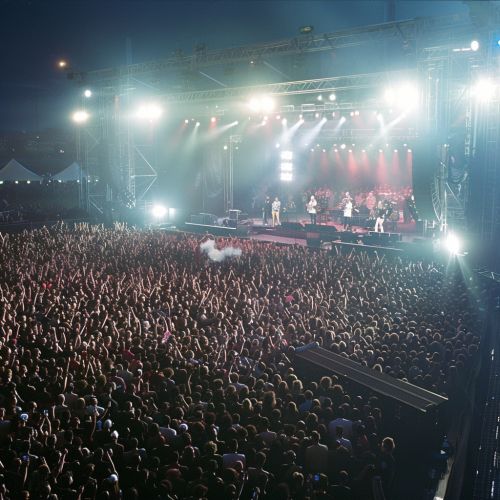History of Pop Music
Origins and Early Development (1950s-1960s)
Pop music, short for "popular music," originated in its modern form during the mid-1950s in the United States and the United Kingdom. The genre is characterized by its wide appeal, often incorporating elements from various other genres such as rock, jazz, and classical music. The term "pop music" was first used to describe music that was accessible to a general audience, distinguishing it from more specialized genres.


The 1950s saw the rise of rock and roll, a genre that heavily influenced the development of pop music. Artists like Elvis Presley and Chuck Berry became household names, blending rhythm and blues with country music to create a sound that was both new and widely appealing. This period also saw the emergence of the teen idol, a phenomenon where young, attractive singers became immensely popular among teenage audiences.
The 1960s were a transformative decade for pop music. The British Invasion, led by bands like The Beatles and The Rolling Stones, brought a new wave of music that combined rock and pop elements. The Beatles, in particular, revolutionized the genre with their innovative songwriting and studio techniques. This era also saw the rise of Motown, a record label that produced numerous hits and introduced the world to artists like The Supremes and Marvin Gaye.
The Golden Age (1970s-1980s)
The 1970s and 1980s are often considered the golden age of pop music. This period was marked by the diversification of the genre, with the emergence of sub-genres such as disco, funk, and new wave. Disco, characterized by its danceable beats and lavish production, dominated the charts in the late 1970s. Artists like Donna Summer and the Bee Gees became synonymous with the disco era.


The 1980s saw the rise of synth-pop, a genre that utilized synthesizers and electronic instruments to create a futuristic sound. Bands like Depeche Mode and Duran Duran were at the forefront of this movement. The decade also witnessed the emergence of MTV, a television channel that revolutionized the music industry by broadcasting music videos. This new medium allowed artists like Michael Jackson and Madonna to achieve unprecedented levels of fame. Michael Jackson's album "Thriller" remains one of the best-selling albums of all time, while Madonna's provocative image and catchy songs made her a pop icon.
The Digital Age (1990s-2000s)
The 1990s and 2000s were characterized by significant technological advancements that transformed the music industry. The advent of the compact disc (CD) and later, digital downloads, changed the way people consumed music. This period also saw the rise of boy bands and girl groups, with acts like Backstreet Boys, NSYNC, and Spice Girls achieving massive commercial success.


The late 1990s and early 2000s were dominated by teen pop, a sub-genre that targeted younger audiences. Artists like Britney Spears, Christina Aguilera, and Justin Timberlake became pop sensations. The rise of the internet and social media platforms like YouTube and MySpace provided new avenues for artists to reach their audiences. This period also saw the emergence of hip-hop and R&B as dominant forces in pop music, with artists like Beyoncé and Usher achieving mainstream success.
Contemporary Pop Music (2010s-Present)
The 2010s and beyond have seen the continued evolution of pop music, with the genre becoming more eclectic and globalized. The rise of streaming services like Spotify and Apple Music has revolutionized the way people listen to music, allowing for greater access to a diverse range of artists and genres. This period has also seen the emergence of K-pop, a genre of popular music originating from South Korea, with groups like BTS and BLACKPINK achieving international fame.


The influence of electronic dance music (EDM) has also been significant, with artists like Calvin Harris and David Guetta blending pop with electronic elements to create chart-topping hits. The genre has also become more inclusive, with artists from diverse backgrounds and identities gaining prominence. The rise of social media platforms like TikTok has further democratized the music industry, allowing independent artists to reach large audiences without the need for traditional record labels.
